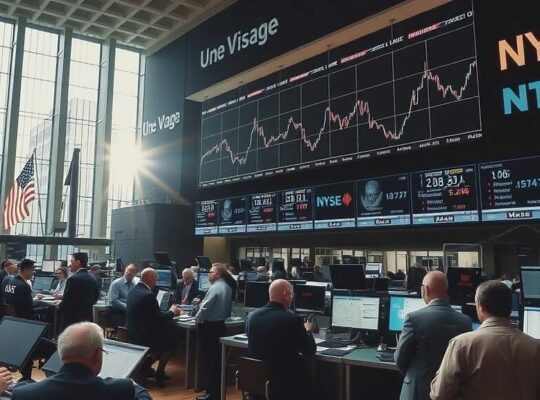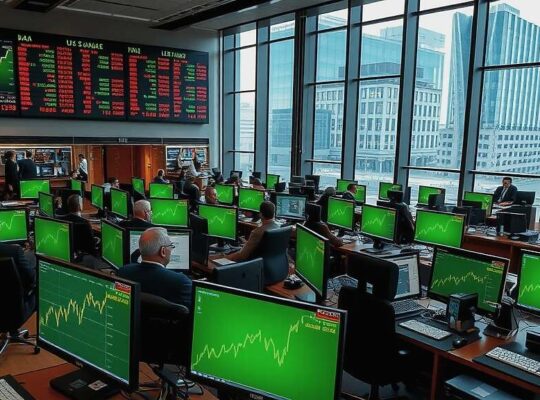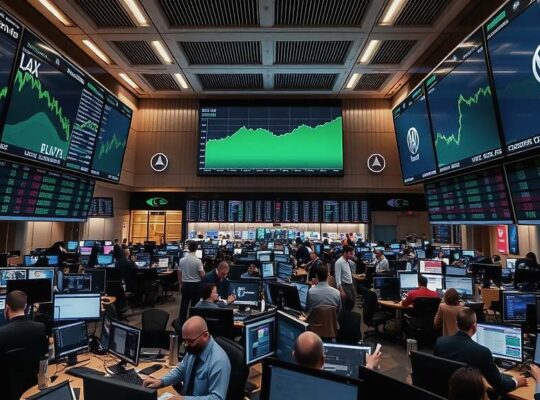The German DAX index experienced a decline on Tuesday, closing at 24,060 points – a 0.4% decrease from the previous day’s close. The downward trend emerged in the afternoon, reversing an initially positive performance seen earlier in the trading session.
Jochen Stanzl, Chief Market Analyst at CMC Markets, attributed the afternoon weakness to a subdued investor sentiment despite further easing of trade tensions between the U.S. and China, specifically regarding Nvidia’s chip export clearance. He noted that German equities have, overall, demonstrated surprising stability in the face of potential U.S. tariffs.
Stanzl highlighted concerns stemming from a recent U.S. inflation report, which for the first time appears to demonstrate the impact of former President Trump’s trade policies on price increases. He also pointed to declining prices for used vehicles and other goods, suggesting a potential economic slowdown and a progression towards stagflation – a scenario that is generally unwelcome in highly valued stock markets.
The possibility of further interest rate adjustments by the U.S. Federal Reserve is also being questioned. According to the analyst, monetary policy options are now once again open for discussion. This is reportedly influenced by the ongoing competition for the position of Fed Chair, with candidates seemingly vying to advocate for interest rate cuts, potentially driven by political considerations rather than economic justification.
During trading hours, shares of Brenntag led the performance on the Frankfurt stock exchange, while Commerzbank and Rheinmetall shares registered as the weakest performers.
Natural gas prices saw a decrease, with a megawatt-hour (MWh) for delivery in August costing 34 euros – a 3% reduction from the previous day’s price. This implies a consumer price of at least 8 to 10 cents per kilowatt-hour (kWh) inclusive of surcharges and taxes, should this price level persist.
Crude oil prices also fell, with a barrel of Brent North Sea crude costing $68.98 at approximately 5:00 PM local time – a decrease of 23 cents or 0.3% compared to the previous day’s close.
The European currency weakened slightly during the afternoon, with one euro costing $1.1615 and a dollar being worth $0.8610.












